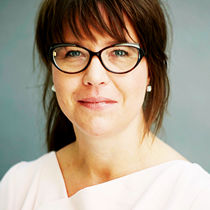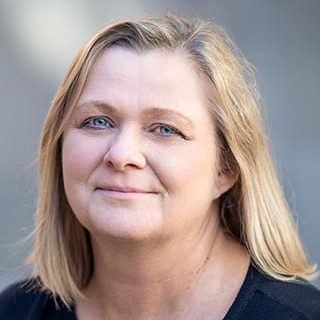Research Integrity in the work with children and digital media
How can researchers working with children and digital media ensure research integrity? Which specific challenges arise in our field, and what strategies might we apply to address these?
We invite researchers working with children and digital media and others interested in the topic of Research Integrity to a webinar and interactive panel discussion. The webinar will be hosted by Professor Elisabeth Staksrud (University of Oslo, Norway), who will be joined by experts in the field of research integrity including Professor Ana Marušić (University of Split, Croatia), Professor Halla Bjørk Holmarsdottir (Oslo Metropolitan University, Norway), Assistant Professor Malte Elson (Ruhr University Bochum, Germany), and Professor Göran Hermerén (Lund University, Sweden).
Chair: Niamh Ní Bhroin (University of Oslo, CO:RE)
This webinar took place on 04 May 2021. You can read up on the speakers’ positions here.
Watch the recorded webinar below:

Speakers: Elisabeth Staksrud (CO:RE), Ana Marušić (University of Split), Halla B. Holmarsdottìr (OsloMet, DigiGen), Malte Elson (Ruhr University Bochum), Göran Hermerén (Lund University) | Chair: Niamh Ní Bhroin (CO:RE). If you should have trouble loading this video, you can watch it here on our YouTube channel.
This webinar is organised by CO:RE WP7 – UiO as part of a webinar series on research ethics.
Note: By participating in the webinar, you agree that your contribution can be recorded and made available online (webinar session, 10.00-10.55 CEST). The subsequent interactive panel discussion will not be recorded (panel discussion, 10.55-11.30 CEST).
Final Programme
10.00-10.10 CEST | Welcome & introduction to the webinar (Professor Elisabeth Staksrud) |
10.10-10.20 CEST | Reporting Consent and assent in research with children (Professor Ana Marušić) |
10.20-10.30 CEST | Managing research integrity in an international qualitative research project (Professor Halla Bjørk Holmarsdottir) |
10.30-10.35 CEST | Mini break / Energiser |
10.35-10.45 CEST | Scientific misconduct and Brandolini’s law: The odyssey of retracting a fraudulent paper (Assistant Professor Malte Elson) |
10.45-10.55 CEST | The European Code of Conduct for Research Integrity: Problems and practices (Professor Göran Hermerén) |
10.55-11.25 CEST | Interactive panel discussion with the speakers / Q&A |
11.25-11.30 CEST | Closing comments & remarks |
Our Speakers

Elisabeth Staksrud
Professor Staksrud is a leading researcher in the field of Children and Media Studies. She is also Chair of the Norwegian National Committee for Research Ethics in the Social Sciences and the Humanities (NESH). Her research focuses on issues of censorship and freedom of expression, and children’s engagement with media. She is also interested in research ethics and in how to conduct research that respects children’s lives, eschewing moral panics in favour of rigorous theory and evidence.

Ana Marušić
Professor Marušić is Chair of the Department of Research in Biomedicine and Health at the University of Split, School of Medicine in Split, Croatia. She is also an Honorary Professor at the College of Medicine and Veterinary Medicine at the University of Edinburgh in the UK, and a Visiting Professor at the Lee Kong Chian School of Medicine, Nanyang Technical University in Singapore. Ana Marušić chairs the Research Committee of the World Association of Medical Editors (WAME) and is Co-Editor in Chief of the Journal of Global Health. She is on the Steering Group of the EQUATOR (Enhancing the Quality And Transparency Of Health Research) Network. She is also the Co-Chair of the Cochrane Scientific Committee. Professor Marušić was the President of the European Association of European Editors (EASE), Council of Science Editors (CSE) and World Association of Medical Editors (WAME).

Halla B. Holmarsdottir
Professor Holmarsdottìr’s research includes ethnographic fieldwork with children and young people as well as scientific coordination and collaboration in cross-national and interdisciplinary research teams. Her research draws on interdisciplinary approaches and includes research on the role of technology in the lives of children and young people, marginalisation in education, social justice, language issues, gender, education, and youth. This work has taken a central focus in looking at the way in which education and, more specifically, teacher education can contribute to providing competencies for democratic participation. She is currently the coordinator of a large-scale European research project funded by Horizon 2020 (Grant Agreement no. 870548) and CO:RE partner project entitled The Impact of Technological Transformations on the Digital Generation (DigiGen).

Malte Elson
Malte Elson is a behavioural psychologist from Cologne, Germany, currently based in Bochum, where he is an assistant professor and head of the Psychology of Human Technology Interaction lab. His research focuses on three major themes: (a) IT Security, including learning and problem solving processes in IT security. (b) Learning with Media, including how individuals acquire behaviours or behavioural responses from and with media, both voluntarily (e.g., in educational contexts) and involuntarily (e.g. the link between digital violence and aggressiveness). (c) Meta Science, i.e. the principles and mechanics of the production of scientific knowledge, including the outcomes of academic peer review, statistical reporting practices and behavioural measurement and operationalisations.

Göran Hermerén
Professor Hermerén was for many years chair of the permanent working group on science and ethics of ALLEA (All European Academies). He was President of the European Group on Ethics in Science and New Technologies (EGE) in Brussels 2002-2011 and is currently involved in several EU-funded research projects. He has numerous publications, mainly on ethical problems in medicine, besides authoring and editing books on research ethics, aesthetics and philosophy of art.
Opportunity for Interaction: The webinar, including presentations and a brief Q&A session, will last for one hour. It will immediately be followed by a 30-minute online interactive panel discussion. We encourage researchers to join us and to engage with our experts to discuss this important topic. You are welcome to send us any questions you may have, or issues you would like to discuss in advance. Please submit your questions via our contact form here (subject: Ethics Webinar) or as direct message on our Facebook, Twitter, LinkedIn or ResearchGate profile.
Explore all webinars from this series
Research Integrity
Research IntegrityFor more CO:RE resources on research ethics visit the
- Compass for Research Ethics Compass for Research Ethics





